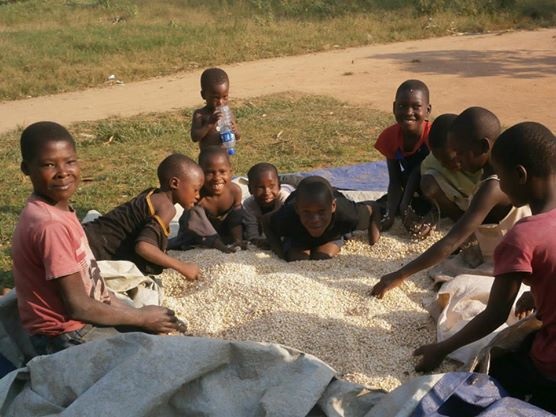-
About
- Our Work
- Get Involved
- Stay Updated
 A joint PhD course called “Assessing transformation in smallholder agricultural systems and Natural Resources” took place in December 2013 and January 2014. The course, organized by the Agricultural Transformation by Innovation (AgTraIn) and the Agricultural and Rural Innovations (ARI) programmes, involved more than 40 PhD students from 23 nationalities who are completing the research in 9 different universities. The two-month on-line course modules were an introduction to the field course, which was carried out in two parishes in the Central region of Uganda. Once in the field, the students and their supervisors walked more than 120 km around 8 villages and made more than 70 interviews to 120 farmers.
A joint PhD course called “Assessing transformation in smallholder agricultural systems and Natural Resources” took place in December 2013 and January 2014. The course, organized by the Agricultural Transformation by Innovation (AgTraIn) and the Agricultural and Rural Innovations (ARI) programmes, involved more than 40 PhD students from 23 nationalities who are completing the research in 9 different universities. The two-month on-line course modules were an introduction to the field course, which was carried out in two parishes in the Central region of Uganda. Once in the field, the students and their supervisors walked more than 120 km around 8 villages and made more than 70 interviews to 120 farmers.ARI PhD programme, the beginning of rural innovation
ARI programme is the original PhD programme in agriculture and rural innovation. It was developed by the consortium of three African universities: Makarere University (Uganda), Egerton University (Kenya), and Sokoine University (Tanzania). The whole intention was to develop a new kind of profession in the area of agricultural innovations, as it seems to be a new agricultural development paradigm. What it is, how it works, what the science is behind; everybody talks about innovations but the concepts are still not very clear though.
According to the coordinator of ARI, Professor Paul Kibwika, this PhD programme integrated both practice and science, in order to train not only academics but also practitioners who can go to the field and make changes in rural development. The challenges faced by the participants were: working in multidisciplinary teams, interacting with the local stakeholders, collecting and cross check information, organising this information, analysing the farming system and achieving collective conclusions and responses to the questions raised.
“In the process of developing our programme we came to know about AgTraIn, explains the coordinator of ARI, they talk about agricultural innovations as well so we thought it would be nice to link the two programmes at some point.” Professor Kibwika emphasises the aim he had at the beginning of bringing the students of AgTraIn and ARI to interact between them as well as with other European and African universities. “This first point of linkage provides a different opportunity that did not exist before,” Professor Kibwuika states.
Joint ARI/AgTraIn Course, the perfect combination
During this joint new course, the students had the possibility to develop skills and acquire contents like: time management, working in a multinational-multicultural-multidisciplinary environment, communication abilities, peer to peer learning, and exposure to different audiences.
Andreas de Needgards’, coordinator of AgTraIn programme, evaluation at the middle of the course was very promising: “Even if some of you are only 2 years away from Masters’ courses I can see that people in our joint course are much more mature and the ability to take decisions and make sensible programming of the research is much better than in a Master.”
The coordinator of AgTraIn programme underlined the significant contribution in terms of knowledge and advice that the students can provide to the community and vice versa. Moreover, this direct contact enables the students to collect information of some topics that the communities may not have been aware of and coming out with new insights into what they could do differently, as well to be linked to the communities even after graduating.
About the author
Related Posts
Comments
No comments made yet. Be the first to submit a commentBy accepting you will be accessing a service provided by a third-party external to https://archive.ypard.net/
Get in touch
Email: [email protected]
YPARD Global Coordination UnitHosted by AGRIDEA and the Czech University of Life Sciences Prague
Lausanne, Switzerland and Prague, Czech Republic - Our Work

